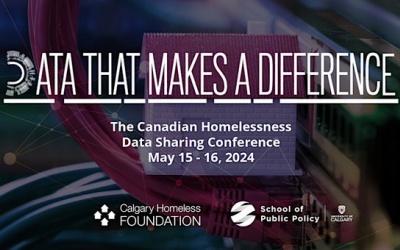Calgary outpaces Toronto and Vancouver as Canada’s least-affordable city for low-income residents

Calgary is the least-affordable city in Canada — if you’re poor.
That’s according to a new analysis that looked at decades’ worth of data on rental costs and social-assistance rates.
Average housing costs may be higher in Vancouver and Toronto, but it’s actually harder for single parents living on a low income to afford a low-end apartment in Calgary, said economist Ron Kneebone, who produced the analysis.
“There’s a lot of talk about a housing affordability crisis in Canada, but when we talk about that issue we’re typically talking about an average Canadian family finding it difficult to afford a house,” said Kneebone, a professor with the University of Calgary’s School of Public Policy.
“The affordable housing crisis is very much a different thing for someone with low income.”
Renting a low-end apartment in Calgary cost a typical single parent living on social assistance a staggering 66 per cent of their monthly income in 2015, according to the analysis.
That compares with 55 per cent in Toronto and 54 per cent in Vancouver.
And it’s not a new phenomenon, either. Calgary was also the least affordable city in Canada in 2010, according to the analysis.
The numbers are based on rental price data from the Canada Mortgage and Housing Corporation and social assistance income rates from the Caledon Institute of Social Policy.
The available data means the analysis is current only to 2015, when Calgary’s rental market had tightened to a level that prompted Mayor Naheed Nenshi to publicly admonish the city’s landlords on a live CBC Radio program. He pleaded with them to stop “gouging your tenants.”
The market has eased since then, however, as the city has endured a sharp economic downturn, but Kneebone said he expects low-end rental prices remain relatively high compared with low-end incomes.
“I wouldn’t expect them to have changed that much,” he said.
“Rents in Calgary have fallen a little bit, so maybe that 66 per cent might be down to 60 per cent, but that is still at crisis level.”
While real-estate prices have skyrocketed in B.C.’s Lower Mainland and the Greater Toronto Area, Kneebone said a combination of factors have made living in Calgary particularly unaffordable for the city’s poorest residents.
“Calgary has gone through an incredible economic boom over the past two decades, and over that period a lot of people have moved to Calgary seeking work, and it’s been simply the case that we have not been able to build rental units quickly enough to house these people and, as a result, rents have gone up — and they’ve gone up quite a bit,” he said.
“And in other provinces, for example in Quebec, the government has increased social assistance payments to keep up with rent.”
In Montreal, a lone parent living on social assistance devotes half as much as their income to rent as in Calgary, according to the analysis.
No ‘cookie-cutter solution’
Affordability varies widely from city to city, which means there is no “cookie-cutter solution” at a national level, Kneebone said.
“The federal government sometimes talks about an affordable housing strategy for Canada, and I’m often concerned that they are not recognizing that there is, in fact, no affordable housing crisis in some cities, but there’s a very serious one in others,” he said.
“They need to be applying their resources to where the need is greatest,” he added.
“For a poor person, if you cannot afford to rent an apartment, the next step is homelessness.”
Source: CBC

